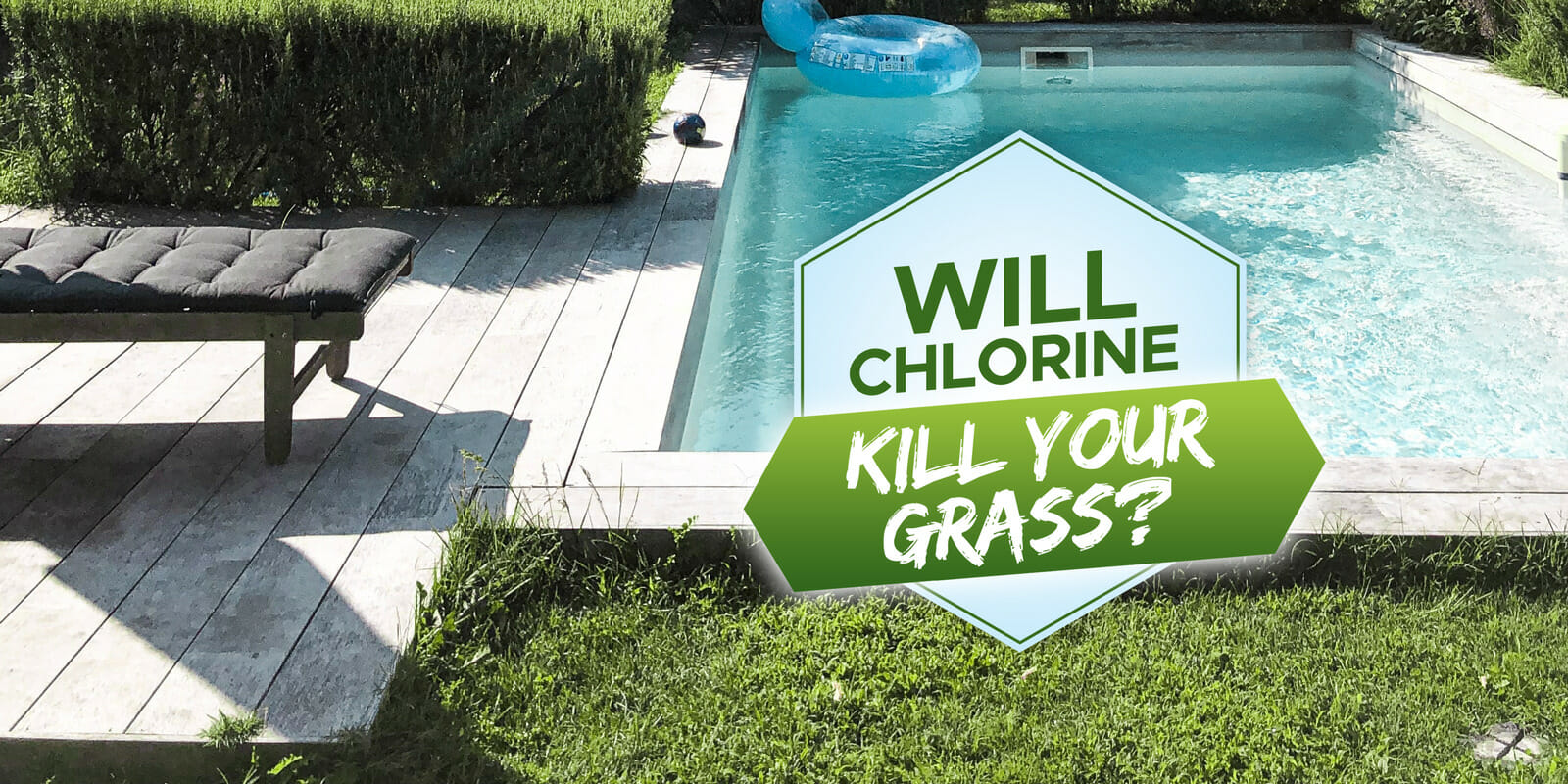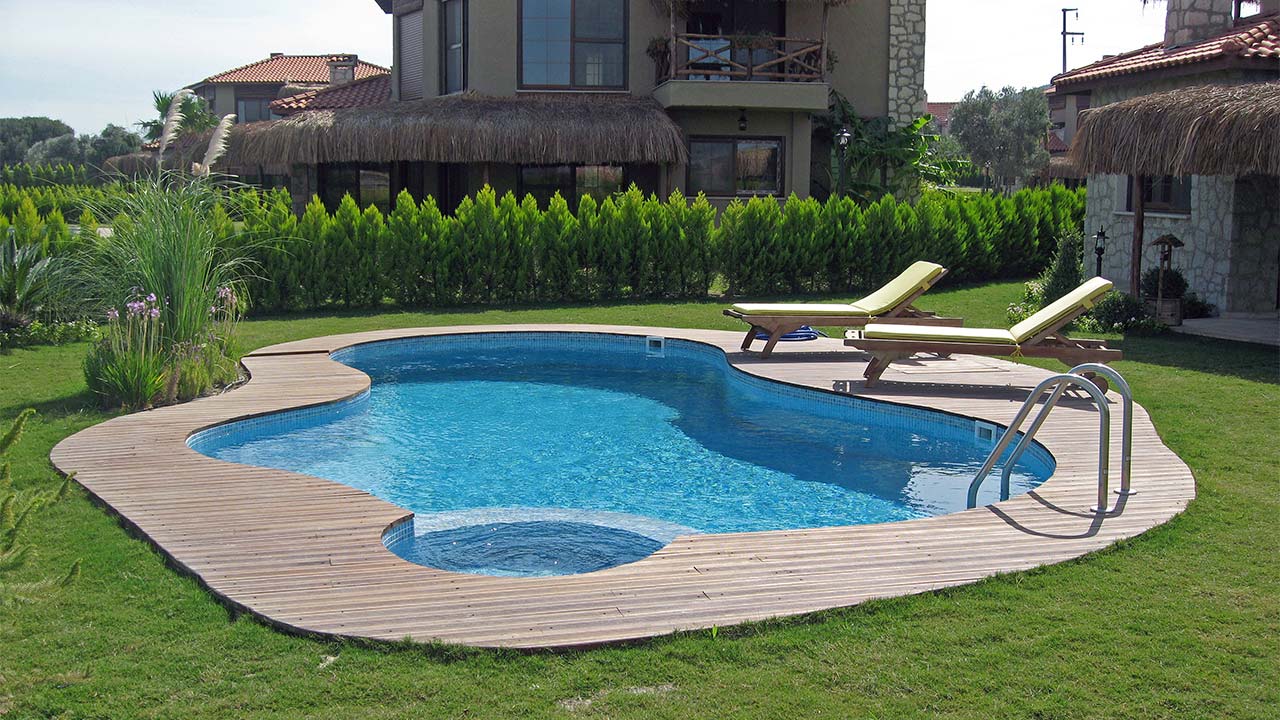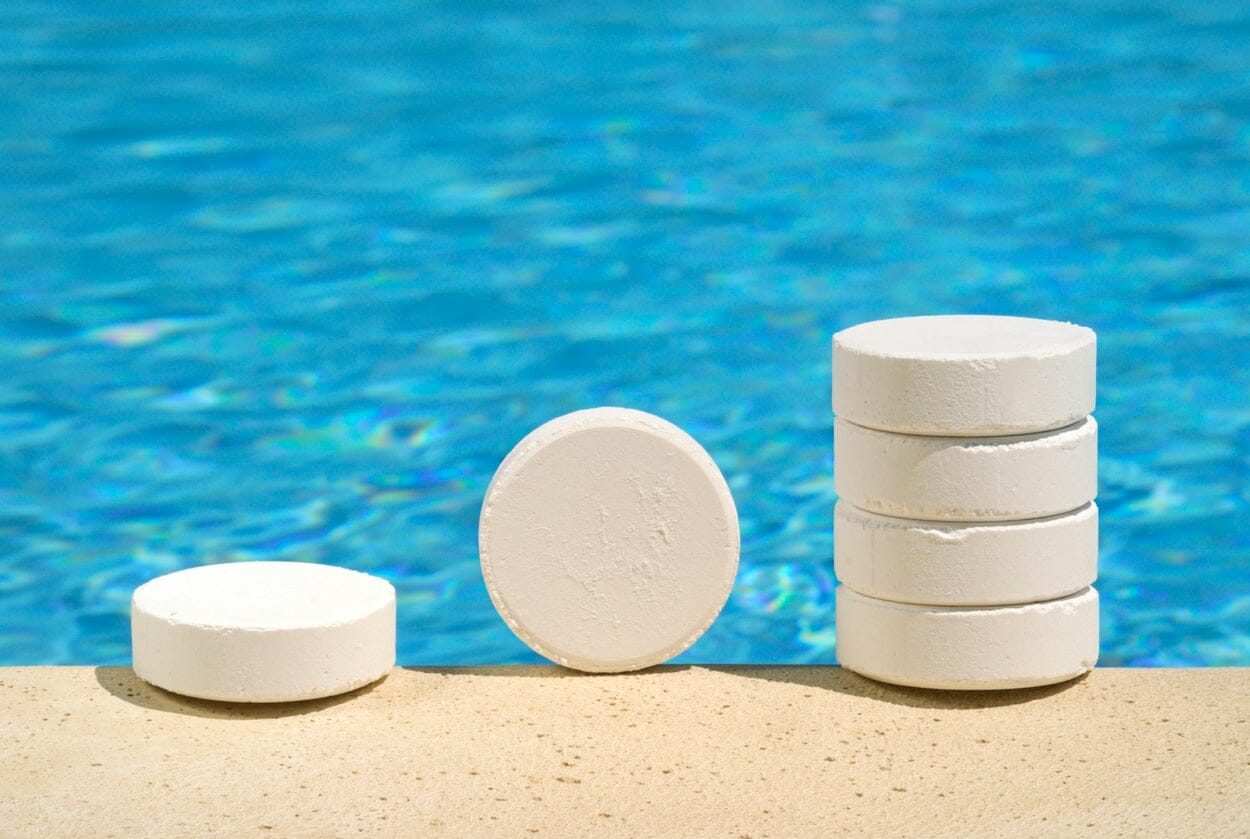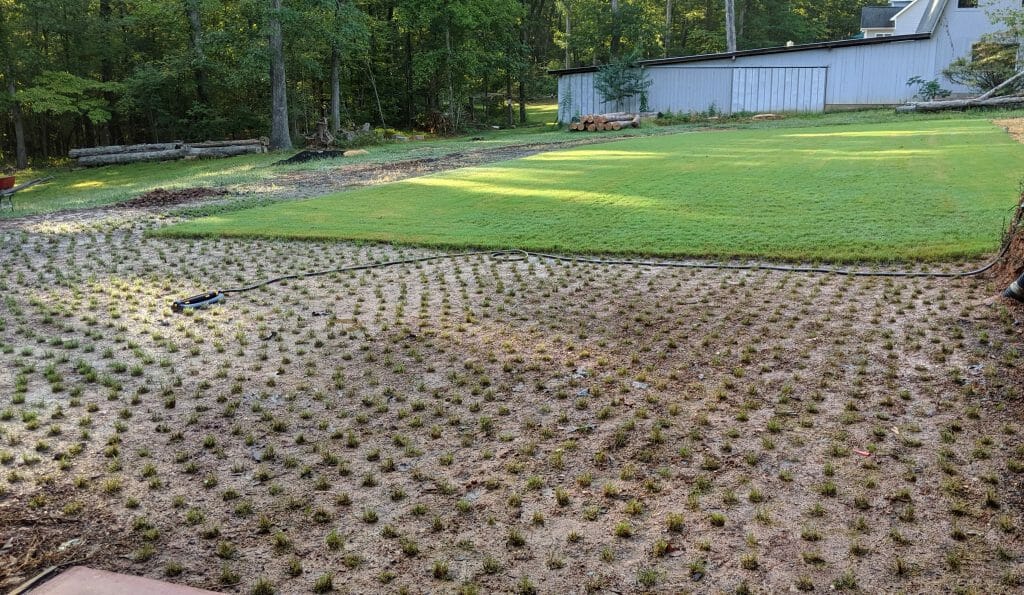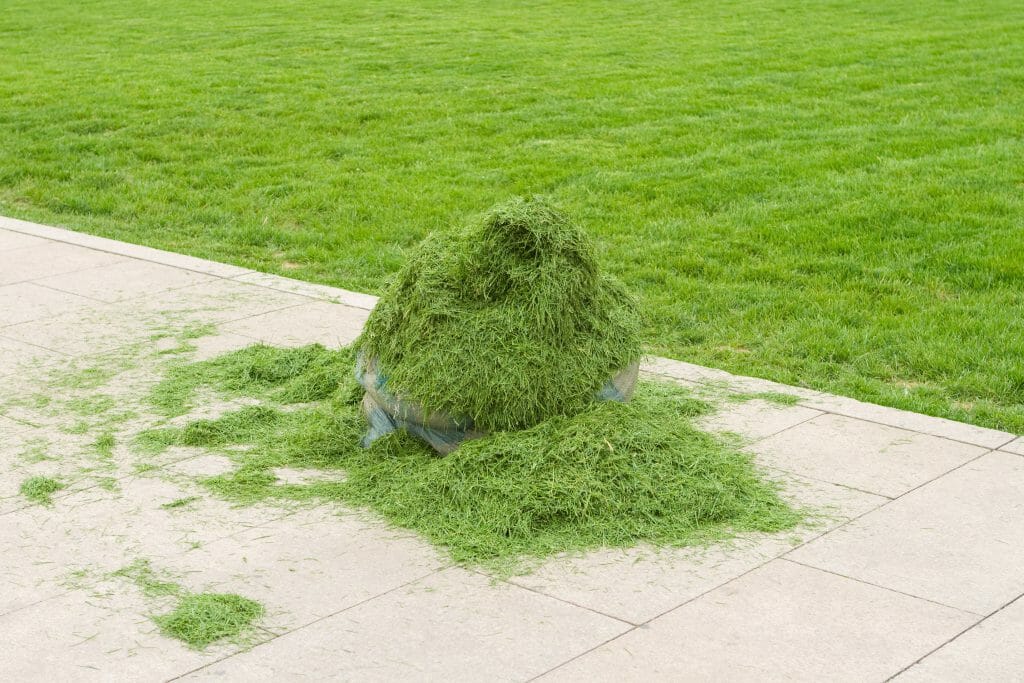As pool owners know, it’s necessary to drain your pool as part of your yearly pool maintenance. In the spirit of saving water, it may be tempting to let this water run onto your lawn.
Before you do this, however, you may need to ask yourself: will chlorine kill grass?
If the chlorine concentration in the pool water is low enough it will not harm your lawn if drained onto it.
Draining your pool water onto your lawn is a great way to recycle water that would otherwise go to waste. This way, your pool gets a good clean, and your lawn gets a good drink. However, you should only do this when the chlorine levels are safe.
In this article, we will be learning a little more about pool water and whether it may spell danger for your precious lawn. We will also let you know how to empty your pool safely.
What is in Pool Water?
So, the first thing we need to address to answer this question is; what is actually in pool water?
Despite what most of us think, the chlorine we use in swimming pools is not actually elemental chlorine. Instead, it is a combination of chemicals.
The chemicals that go into pool water are:
- Hydrogen and oxygen-containing hypochlorites
Or
- Carbon, nitrogen, and oxygen-containing isocyanurates
Those may seem like big, science words but, to put it simply, once these chemicals are added to water they spontaneously to form hydrochlorus, which is known as ‘free chlorine’ or pool chlorine.
These chemicals fight against microbes and algae growth to make it safe for humans to swim in on a regular basis.
Will Chlorine Kill Grass?
If you have been paying attention to the chlorine levels in the pool water before emptying your pool, it should not contain a high enough level of chlorine to kill your grass.
In order to make the pool water safe to drain onto the lawn, you need to dilute the chlorine down to 0.1 parts per million. Turf grass can easily withstand this level of chlorine without any damage.
The best way to drain your pool without damaging your grass is to:
1. Stop Pool Treatments Before Draining
Set aside a date that you are going to drain your pool. Avoid adding chlorine or any chemicals to the pool for a few weeks before this date.
2. Measure Chlorine Levels
Before you drain your pool you will need to check what the chlorine levels are to ensure that it is safe.
You can do this using an at home kit that can be purchased at hardware or pool stores. The chlorine levels should be below 0,1 parts per million. If it is still reading higher than that we suggest delaying draining your pools until the levels drop.
3. Drain slowly
The best way to drain your pool is to do it slowly and evenly distribute it across your lawn if possible.
We recommend aiming the water in one direction and setting a timer for a few minutes. Then move to a new area of the lawn and repeat. This will prevent overwatering in one particular area, which could also damage your grass.
Will Chlorine Kill Plants?
Now we know that your grass is relatively safe, but what about other plants?
We don’t recommend using pool water to water your garden beds. This is because ornamentals, trees, and shrubs are more sensitive to chlorine toxicity than turf grass is.
If a little run off gets into the beds and the chlorine level is really low, you should be alright but prolonged or extensive exposure should be avoided.
DON’T MISS: Backyard pool ideas on a budget!
Frequently Asked Questions:
Will chlorine kill weeds?
Technically yes, chlorine can effectively kill weeds. It will dehydrate the plant and burn the roots, eventually killing it.
However, there are risks in using chlorine in this way. Eventually, it will be washed away by water and make its way to other plants that you don’t wish to kill. We suggest using a dedicated weed killer rather than resorting to chlorine to protect the plants around it and prevent poisoning your soil.
Will direct contact with chlorine kill grass?
If you are working on your pool maintenance and accidentally spill some undiluted chlorine on your lawn, it will definitely kill it as the concentration is so high.
We recommend flushing the areas with water if this happens to try to limit the damage. To avoid this, you can try preparing the chlorine on a paved area rather than on the grass.
Conclusion
Well, I don’t know about you, but we’ve just learned a lot about pool water!
As we have discovered, if you’re careful, you can drain your pool and water your lawn in one fell swoop. It’s all about diluting the chlorine down to a safe level, so your lawn remains lush and healthy.
We hope this has armed you with all the knowledge you need the next time you need to do some pool maintenance.

